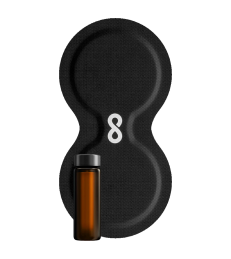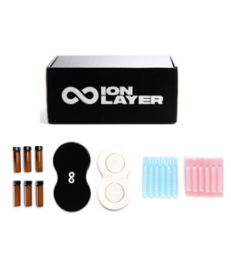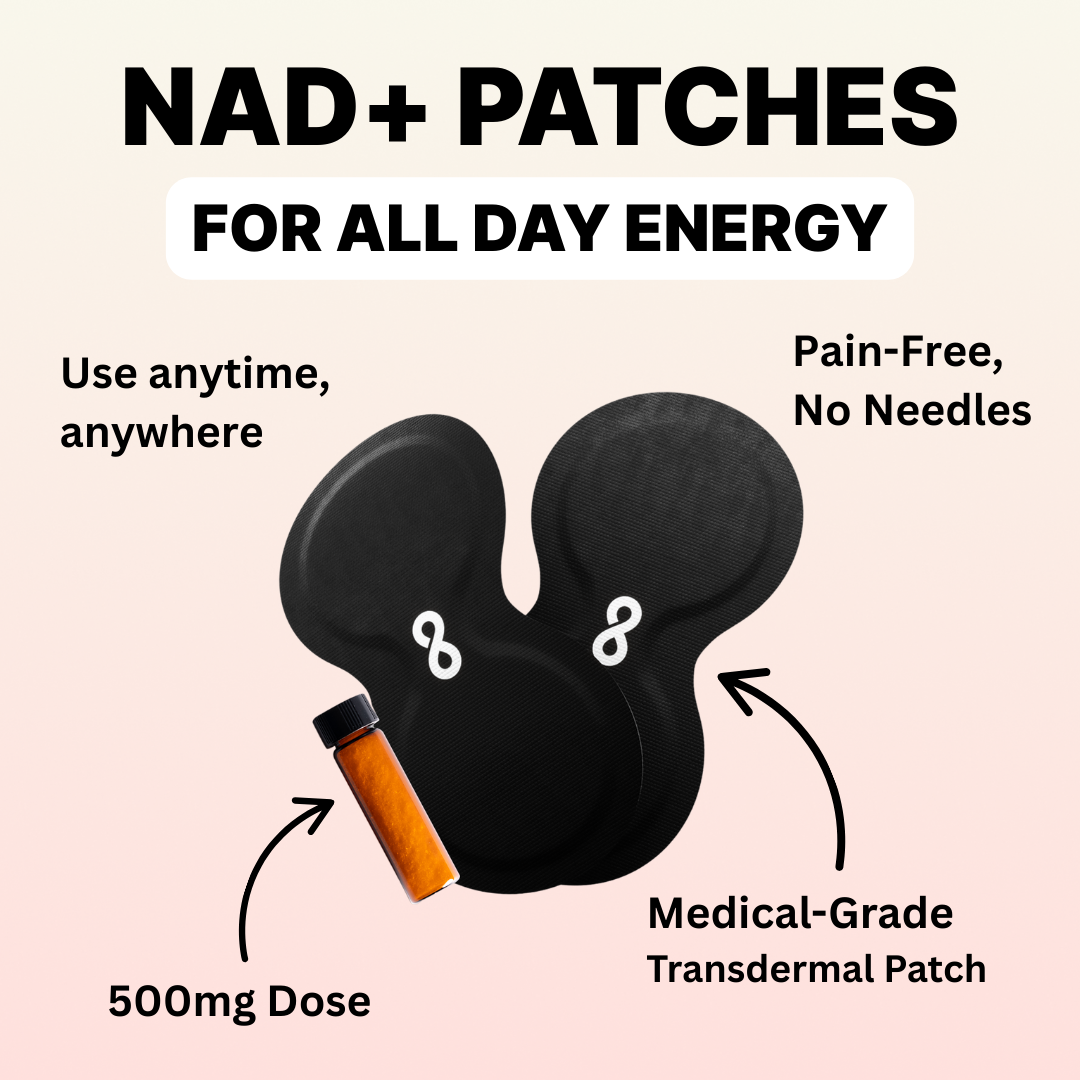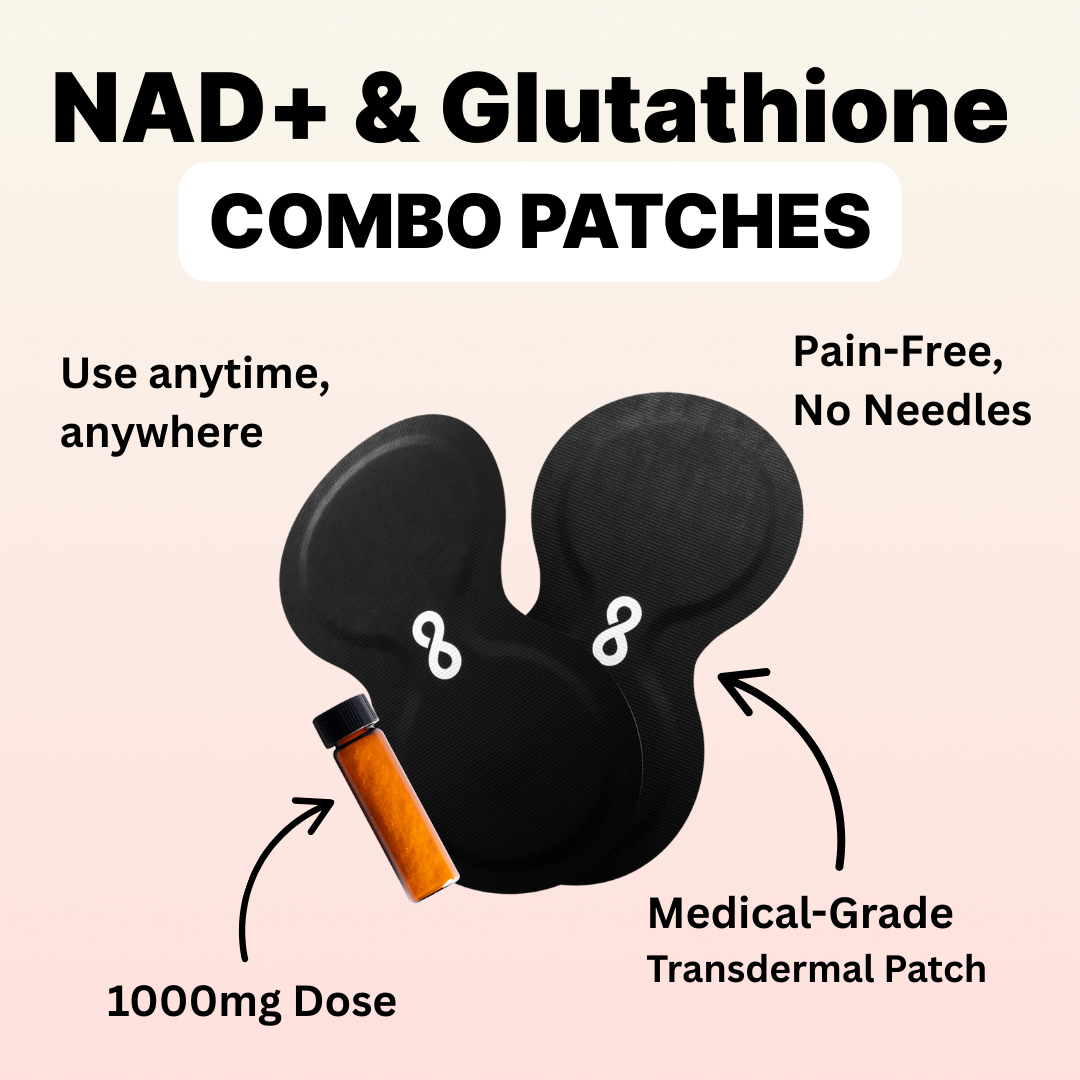


NAD+ and Fertility: Understanding the Link for Reproductive Health
NAD+ is a natural molecule found in every cell of the body. It plays a big part in how cells turn food into energy.
As people get older, NAD+ levels drop, which might lead to fertility problems in both men and women. Some research shows that increasing NAD+ can improve egg and sperm quality, which could support fertility as people age.
Scientists have noticed links between NAD+ and reproductive aging. In women, boosting NAD+ may help rescue fertility during reproductive aging, while in men, NAD+ levels can impact sperm quality and concentration.
Lots of people are curious about NAD+ because it ties cell health to the ability to have children. Understanding this connection might help couples make better choices about fertility and aging.
Understanding NAD+ and Its Biological Functions
NAD+ is a molecule inside every living cell. It's central to how cells make energy, handle stress, and carry out essential functions that keep us going.
What Is NAD+?
NAD+ stands for nicotinamide adenine dinucleotide. It's a coenzyme, which basically means it helps enzymes do their jobs during chemical reactions in the body.
This molecule is crucial for turning nutrients from food into energy that cells use. Without enough NAD+, many cell processes would slow down or even stop.
Cells use and recycle NAD+ constantly as they work. Levels of NAD+ shift depending on age, health, diet, and stress.
As people get older, NAD+ levels usually drop, and that can affect cell health and how the body works overall.
NAD+ Roles in Cellular Metabolism
NAD+ plays a key role in cellular metabolism, which is how cells get energy. It mainly helps transfer electrons, which is part of making ATP—the main energy source in cells.
NAD+ helps convert carbs, fats, and proteins into ATP. It's important for two main processes:
- Glycolysis (breaking down glucose)
- The Krebs Cycle (energy production in mitochondria)
Both of these need NAD+ to work right. If NAD+ is low, cells might not have enough energy to grow or repair themselves.
Scientists see NAD+ as essential for healthy cellular function.
NAD+ and Mitochondrial Health
Mitochondria rely on NAD+ to make ATP efficiently. These "powerhouses" of the cell generate most of the cell’s energy.
If NAD+ runs low, mitochondria can't do their job well. That means less cellular energy and more oxidative stress, which over time can mess with tissues and organs.
Keeping NAD+ levels healthy supports mitochondria and helps cut down on damage from oxidation. Some research hints that boosting NAD+ can keep mitochondria working well as we age, which could help overall health and maybe even improve fertility.
NAD+ and The Reproductive System
NAD+ plays a big role in both male and female fertility by supporting the cellular processes that matter for reproductive health. Its levels affect egg and sperm quality, plus hormone production that influences fertility.
NAD+ in Oocyte Quality
Oocytes, or egg cells, lose quality and function as women age. A major reason for this is a drop in NAD+ levels over time.
Lower NAD+ in the ovaries means less energy for the eggs, more DNA damage, and weaker cell repair. Research finds that boosting NAD+ can help maintain better oocyte quality in older women.
NAD+ supports mitochondrial function, which supplies energy to eggs. Healthier mitochondria might mean higher chances of successful fertilization.
Some studies suggest that NAD+ precursors could reverse certain effects of reproductive aging.
Egg health affects fertility success, miscarriage risk, and pregnancy outcomes. Keeping NAD+ levels steady might help women trying to conceive, especially those of advanced maternal age.
Influence on Sperm Health
Sperm quality also relies on NAD+ balance. NAD+ is crucial for making energy and defending sperm cells from oxidative stress.
It helps protect sperm from oxidative stress, which can damage DNA and cut down motility. Fertile men tend to have a better NAD+/NADH balance in their sperm, which supports healthier function.
Low NAD+ can mean fewer sperm, less movement, and more abnormal forms. Science shows that boosting or maintaining NAD+ may lead to better sperm quality and higher chances of fertilization.
Hormonal Regulation and NAD+
NAD+ helps control the function of several hormones tied to reproduction. Hormones like estrogen and testosterone depend on proper NAD+ levels for their production and balance.
This molecule takes part in metabolic pathways that manage hormone release and conversion in the ovaries and testes. When NAD+ drops, it can disrupt hormone cycles, causing irregular periods or lower testosterone.
Better NAD+ function helps the reproductive system get the right signals for healthy egg release and sperm production. Supporting NAD+ levels could improve hormone health for both women and men, adding another layer of support to fertility.
Impact of NAD+ on Male Fertility
NAD+ matters for the normal function of male reproductive cells. It influences sperm production and protects against oxidative stress.
Spermatogenesis and NAD+
NAD+ plays a key role in spermatogenesis—the process where the body makes sperm. Proper NAD+ levels help support energy production in the cells of the testes.
This is important because sperm formation demands a lot of energy. Low NAD+ can slow down how quickly new sperm develop.
As men age, NAD+ often declines, which usually leads to reduced sperm quality and lower fertility rates. Studies have found that a higher NAD+/NADH ratio in sperm links to better sperm count and motility.
When the balance shifts and NAD+ drops, men may experience lower fertility—even if everything else seems fine. Here’s a quick summary of how NAD+ affects spermatogenesis:
| NAD+ Status | Sperm Quality | Sperm Count | Motility |
|---|---|---|---|
| High | Improved | Increased | Better |
| Low | Reduced | Decreased | Lower |
Oxidative Stress Reduction
Oxidative stress can damage sperm DNA and hurt the chances of successful fertilization. NAD+ supports the cell’s natural antioxidant systems, helping keep the balance between free radicals and antioxidants.
As men get older, NAD+ in sperm cells tends to decrease. This makes sperm more vulnerable to oxidative stress, which can further lower fertility.
By maintaining healthy NAD+ levels, the body can protect sperm from oxidative damage and promote better reproductive health. Some researchers suggest that raising NAD+ may help protect sperm quality and extend reproductive health in aging men, though there's still more to learn here.
NAD+ and Female Fertility
Lower NAD+ levels are closely tied to changes in female fertility, including egg aging and how follicles grow. Many studies back the idea that keeping NAD+ healthy may help improve reproductive health as women age.
Egg Aging and NAD+
Eggs lose their quality over time, often because of cellular aging. NAD+ is a small molecule that helps cells function properly, and when it drops, eggs show more DNA damage and are less likely to become healthy embryos.
By the late 30s, women's fertility usually starts to decrease, which is linked to the drop in NAD+ in the ovaries. Keeping NAD+ at good levels may support egg quality and slow this decline.
Researchers have learned more about how NAD+ connects to fertility problems and found that boosting NAD+ may help women keep their reproductive health longer. For more details, check out how NAD+ is linked to fertility problems.
Follicular Development
In the ovaries, follicles mature eggs and release them during ovulation. This process needs healthy energy production, and NAD+ plays a big role in that.
Without enough NAD+, follicles might not develop well, leading to fewer mature eggs. Raising NAD+ levels could help follicles grow better and improve the chances of producing healthy eggs for fertilization.
Scientists have found that NAD+ affects follicle growth at every stage. Some research suggests that increasing NAD+ could improve egg quality, which may help women struggling with fertility due to poor egg development.
Aging, NAD+ Levels, and Fertility Decline
NAD+ levels in the body change as people get older, affecting cell health and energy. Fertility, especially for women, is closely tied to these changes as NAD+ drops.
Age-Related Depletion of NAD+
As people get older, NAD+ levels drop in many tissues. This change hits how cells make energy and fix themselves.
In women, the drop in NAD+ shows up most in the ovaries and eggs. Studies have found that older females have less NAD+ in their eggs, which affects egg quality and can lead to more genetic issues in offspring.
This decline is a big reason fertility drops with age. It’s a tough pill to swallow, but biology rarely plays fair.
Researchers have found that restoring NAD+ levels in aging females can improve egg quality. NAD+ helps fix DNA and keeps cell structures healthy, which matters as eggs age and get more vulnerable to damage.
Fertility in Older Individuals
Lower NAD+ in aging women leads to fewer healthy eggs and makes pregnancy harder. Eggs with little NAD+ are more likely to divide wrong and create embryos with mistakes, sometimes causing early pregnancy loss.
Some research hints that raising NAD+ in the ovaries could help preserve fertility later in life. Animal studies show that boosting NAD+ improves egg quality and the odds of pregnancy.
Male fertility doesn’t seem as tied to NAD+ levels. Most data shows no strong link between NAD+ in sperm and age.
For women, though, keeping NAD+ up is pretty crucial for reproductive health as the years go by.
Boosting NAD+: Strategies and Effects on Fertility
Research points to NAD+ as a key player in reproductive health. Improving NAD+ levels might support fertility, especially for women facing age-related decline.
Lifestyle Factors
Regular exercise can lift NAD+ levels naturally. Both aerobic and resistance workouts help the body turn nutrients into energy, supporting higher NAD+ in cells.
Getting enough sleep matters, too. If you don’t rest enough, your body struggles to make NAD+.
Most adults need about 7–9 hours of good sleep each night. It’s not always easy, but it’s worth aiming for.
Managing stress helps keep NAD+ steady. Chronic stress drains body resources, including those needed for NAD+ production.
Meditation, yoga, or just being outside can lower stress and support fertility. It’s not magic, but it helps.
Avoiding smoking and heavy drinking protects NAD+ levels. These habits force the body to use more NAD+ for repairs, which can hit both energy and reproductive function.
Dietary Interventions
Certain foods can boost NAD+ since they contain precursors like tryptophan and niacin (vitamin B3). Turkey, fish, peanuts, mushrooms, and green veggies are good choices.
Staying hydrated and getting enough healthy fats, protein, and B-vitamins helps, too. These nutrients help the body use energy better, which can make a real difference for reproductive health.
Emerging Therapies
Researchers are exploring NAD+ boosters as a way to treat infertility. Some studies in mice and people suggest that therapies to replenish NAD+ can improve egg quality and fertility, especially as women age.
Scientists are also testing NAD+ repletion in people who lost fertility after chemotherapy. Boosting the NAD+ metabolome might protect the ovaries from certain types of damage and improve future pregnancy chances.
NAD+ therapy isn’t widely used yet. Most treatments are still experimental, and we need more studies to know if they’re safe or truly effective for fertility.
Potential Risks and Considerations
If you’re thinking about NAD+ supplements for fertility, it’s smart to consider both safety and how these supplements might interact with other treatments or meds. The risks come from current research and what people have reported so far.
Possible Side Effects of NAD+ Supplementation
NAD+ supplements, like most dietary products, can cause side effects. The most common are mild—nausea, upset stomach, diarrhea, or headaches.
Usually, these go away as your body gets used to the supplement, but they’re still annoying. High doses of NAD+ can sometimes cause flushing, sweating, or dizziness.
Allergic reactions are rare but possible—rash, itching, or trouble breathing. If you have any reaction, stop using the supplement and talk to your doctor.
People with health issues like liver or kidney problems need to be extra cautious. Since NAD+ changes some metabolic pathways, those with chronic disease should check with their healthcare provider before starting anything new. For more details, you can look at current research on NAD+ supplementation and reproductive health.
Interactions with Other Treatments
NAD+ supplements might interact with other medications or fertility treatments. For example, they could change how some drugs work by affecting metabolism or hormone levels.
Women going through in vitro fertilization (IVF) or using fertility drugs should talk to their doctor before adding NAD+ supplements. There’s not much research on combining NAD+ with other fertility boosters, so it’s best to have medical supervision.
If you’re taking medication for chronic illness like diabetes or hypertension, be careful. Combining NAD+ with certain drugs could cause unwanted effects or mess with how well your meds work.
If you’ve got concerns or complex health needs, checking the latest guidance on NAD+ and female reproduction is a good idea.
Current Research and Future Directions
Research on NAD+ and fertility has really picked up lately. Scientists want to know how NAD+ levels shift as people age and what that means for having kids.
This topic keeps popping up, especially in studies about ovarian aging and fertility treatments.
Researchers are digging into NAD+ and fertility in a few main ways:
- Measuring NAD+ levels in ovarian tissue
- Testing NAD+ precursors in animal and early human studies
- Exploring links between low NAD+ and pregnancy loss or birth defects
Some studies hint that boosting NAD+ might actually help with fertility. This seems especially true for women facing age-related declines.
One review even talks about ways to increase NAD+ to support fertility as women get older.
Now, researchers are testing NAD+ boosting therapies in people. They're trying to figure out if these treatments are safe and actually work.
Clinical trials and more animal studies are happening right now to sort out the benefits and possible risks. But honestly, nobody knows the best dose or the long-term effects yet.
A recent review highlights that we're still in the early days here. There's a lot left to learn before doctors can recommend NAD+ supplements for fertility.
Here's a quick summary of where things stand:
| Research Focus | Current Status |
|---|---|
| NAD+ and egg quality | Animal data promising |
| Human trials | In early stages |
| Safety/side effects | Still under review |







